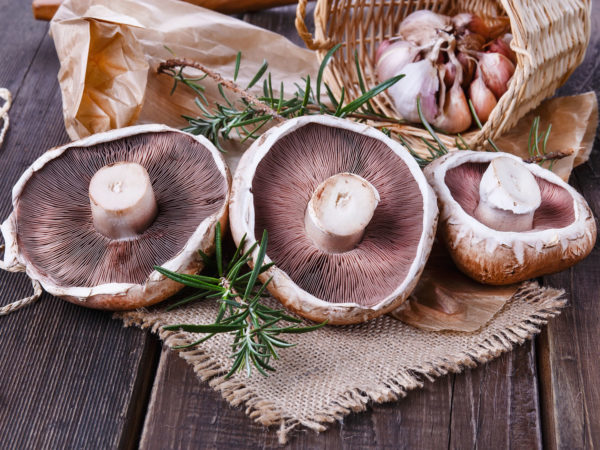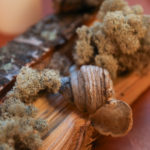Mushrooms To Curb Cancer?
What can you tell me about the mushroom Agaricus blazei? I’ve been told that it can cure or prevent breast cancer or other types of cancer. This sounds far-fetched to me.
Andrew Weil, M.D. | March 17, 2014

Agaricus blazei, sometimes called Agaricus blazei murrill, is a medicinal mushroom known in Japan as himematsutake; in Brazil, where much of the world’s supply is grown, as cogumelo do sol or medicinel; and in the United States as the almond portobello or Royal Sun Agaricus. This delicious, edible mushroom has a pronounced almond-extract flavor and meaty texture; it also appears to enhance immune system activity.
Although it may sound exotic, Agaricus blazei was first discovered in Florida. Japanese growers are now producing it commercially in Brazil. Researchers in Japan have done most of the scientific studies investigating this mushroom’s medicinal effects. Agaricus blazei contains beta glucans, a group of polysaccharides (complex sugars) that are believed to be the compounds responsible for the mushroom’s immune-boosting effects. In addition, research has shown that Agaricus blazei has anti-tumor and anti-viral activity, as well as moderating effects on blood sugar and cholesterol. It has also been used to treat atherosclerosis, hepatitis, high serum triglycerides, type 2 diabetes and some skin disorders. In Asia, it is widely consumed as an edible mushroom and also in extract form mostly for cancer prevention and treatment.
A 2007 review of the scientific literature on Agaricus blazei concluded that beta glucans presumably contribute to the immunostimulatory activity seen in studies. But the authors wrote that “careful clinical studies comparing the activity of isolated compounds, whole mushroom extracts and epidemiological data are still necessary to determine whether Agaricus blazei Murrill provides real clinical benefits.” They also noted that there is a need for “dose-response studies and isolation as well as chemical identification and quantification of specific compounds responsible” for the potential benefits.
The review described only one human study of Agaricus blazei‘s effects in cancer patients. South Korean researchers found that cervical, ovarian, and endometrial cancer patients who took Agaricus blazei while undergoing chemotherapy suffered fewer side effects than women in the study who did not. Those who took it had better appetite, less hair loss, less general weakness and better emotional stability throughout treatment, the researchers reported.
In addition to Agaricus blazei, I also recommend cancer patients consider three other mushroom species that have anti-cancer and immune-boosting effects:
- Maitake (Grifola frondosa) is an edible mushroom known here as “hen of the woods” because in appearance it resembles the fluffed tail feathers of a nesting hen. In addition to its anti-cancer, anti-viral and immune-enhancing properties, maitake may also reduce blood pressure and blood sugar.
- Reishi mushrooms (Ganoderma lucidum) are too bitter to eat as food but are widely available in tea bags, capsules and liquid extracts. Animal studies have shown that reishi improves immune function and inhibits the growth of some malignant tumors; it is also a natural anti-inflammatory agent.
- Turkey tail (Trametes Versicolor) is a common woody mushroom that grows on dead trees and stumps is showing significant anticancer effects in ongoing laboratory and clinical research. Look for standardized extracts in capsules.
Andrew Weil, M.D.
Learn more: All About Mushrooms
Sources:
F. Firenzuoli and L. Gori et al, “The Medicinal Mushroom Agaricus blazei Murrill: Review of Literature and Pharmaco-Toxicological Problems”, Evidence Based Complementary and Alternative Medicine, March 2008, doi: 10.1093/ecam/nem007
W.S. Wan et al, “Natural killer cell activity and quality of life were improved by consumption of a mushroom extract, Agaricus blazei Murill Kyowa, in gynecological cancer patients undergoing chemotherapy,” International Journal of Gynecological Cancer, July-August 2004 (4):589-94.











